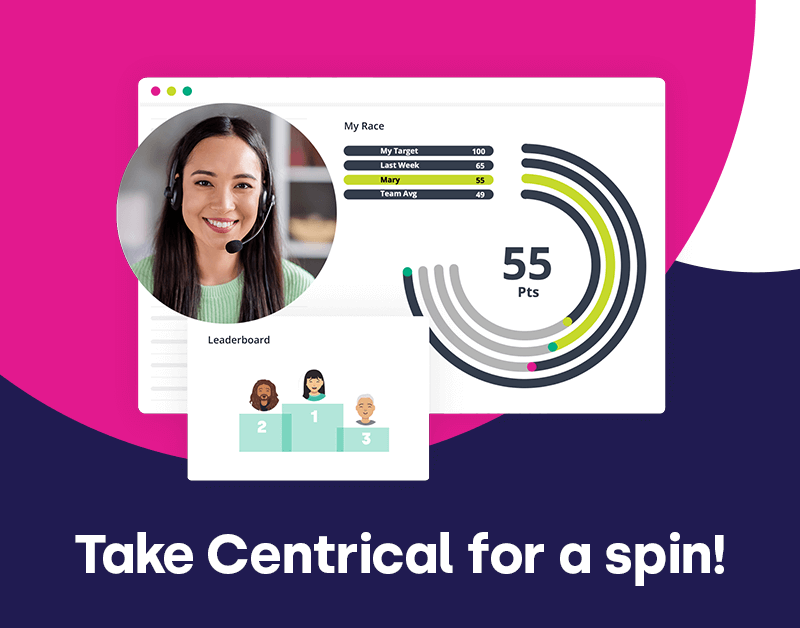Karma Lessons: making people share knowledge
Can you learn something about social and knowledge collaboration from a venture capitalist? As a longtime enterprise gamification person I was doubtful at first. But now, with the Karma app my answer is a resounding “Yes!”.
This July, Aleph VC announced a mobile app called Karma. I wrote about the app’s focus on creating a pay it forward culture and its attempt at gamifying good deeds – here. At the time the app was not available; the app was released on September 7th. This is a review of the knowledge collaboration and social sharing aspects of the app, all of which may come handy as great best practice examples for anyone interested in using gamification to encourage knowledge and social collaboration.
First of all, for those that did not read our previous posts, Karma was created by Aleph, a venture capital fund. Venture Capitalists are interested in promoting knowledge collaboration – entrepreneurs and startups need an environment they can thrive in – and that environment has to be willing to share lessons learned. Otherwise, entrepreneurs risk learning stuff the hard way – although some of the knowledge may have already informally existed in the community. When you learn stuff the hard way, some of the money invested by the venture capitalist is lost… see the reasons behind the necessity of promoting knowledge sharing?
Anyone in the VC space can tell you that much of the advice, know-how and information sharing is done for “karma” – a good deed with no tangible benefit attached. People help each other within the venture community for many reasons – some believe in “pay it forward” – helping others as you were once helped. Some use advice to maintain a reputation, and some do it for its own sake. Yet gamifying “karma” – just like using gamification for enterprise knowledge collaboration – can drive more adoption and result in more knowledge sharing. It is of great interest when people don’t know each other – and this is where gamification can work, by providing recognition and other forms of gamification satisfaction.
The Karma App is a way of institutionalizing advice, making it simpler to access and having the results shared with everyone. The app’s stated goal is to serve “Aleph’s entrepreneurial community, focused on helping the members of this community help each other. You can ask questions, request assistance and provide help to others”.
As we had mentioned in our previous post, the app uses gamification elements to reward those who help others. Its inspiration is probably partially reddit, which has used karma points as a way to reward people contributing to its community.
The Karma App is also a nice reminder about how well designed knowledge collaboration can work. Here are some takeways:
1. Remind people of the basics: good onboarding makes knowledge collaboration simple to grasp
The first screens the user sees are those that remind him what Karma is good for.
The “gives & gets” screen says “Karma is a community of entrepreneurs giving and getting help from their peers”.
There are several additional screens that ensure that whoever downloaded the app with some unclear notion of what it does will have a better idea of what it is about. This is a great approach when thinking of onboarding anyone on a knowledge collaboration or social collaboration system. State the importance of the system; explain how it works.
2. Don’t just encourage people to answer questions; they should ask one too
One of the first screens forces you to make your first request to the community. You cannot skip it and just browse other people’s questions. This forces people away from a passive involvement in the knowledge collaboration system – they can’t just browse around and see who asked a question. They must ask a question and become active – if they asked one thing they should probably also look for a question to answer. This is also a nice example of “show, don’t tell” since it forces you to see for yourself how your question will be answered.
This is how the Karma app states this principle: “Karma is a community dedicated to mutual help. We would like you to experience that from the get go, so go ahead and ask your first request.”
3. Encourage referrals and introductions
Knowledge collaboration is sometimes about directing questions to the right people. Community creation is an important goal for many knowledge collaboration scenarios. That’s why the app encourages you to “introduce and be presented” stating that “when you don’t know the answer, but think of a group or person that might, refer the question to them. It’s just as valuable”.
4. Reward contributions immediately
Each action on karma – answering a poll, responding to a question – is noticed and earns karma points.
5. Use a leaderboard
Karma points aren’t just personal. They earn social recognition which is reflected in a leaderboard, which is less about competition and more about recognition.
6. Karma points are made redeemable
On Reddit, karma points exist for their own sake. They are not attached to any tangible benefit. In Aleph’s Karma, Karma points can also be redeemed – but the app doesn’t set a fixed value on them (for instance X hours equal one office hour session or an invite to a closed entrepreneurial event), but rather states they will be redeemed at some future time.
7. But you can keep the rewards undefined – just point to further interactions with the community.
What I like about Karma points is that although Aleph promises they will have some value (probably not monetary and more to do with access and recognition) their future value is tied to interactions with the community, not to money or any other incentive that is external to the system.
Engage and motivate your frontline teams
Improve performance with an AI-powered digital coach
Deliver world class CX with dynamic, actionable quality evaluations
Boost performance with personalized, actionable goals
Nurture employee success with the power of AI
Listen and respond to your frontline, continuously
Drive productivity with performance-driven learning that sticks
Drive agent efficiency, deliver client results
Keep tech teams motivated and proficient on products and services while exceeding targets
Maintain compliance while building customer happiness and loyalty
Enlighten energy teams to boost engagement
Engage, develop, and retain your agents while driving better CX
Improve the employee experience for your reservations and service desk agents



 Dalit Sadeh
Dalit Sadeh April Crichlow
April Crichlow Ella Davidson
Ella Davidson Linat Mart
Linat Mart Gal Rimon
Gal Rimon Jayme Smithers
Jayme Smithers Doron Neumann
Doron Neumann Daphne Saragosti
Daphne Saragosti Ronen Botzer
Ronen Botzer Ariel Herman
Ariel Herman